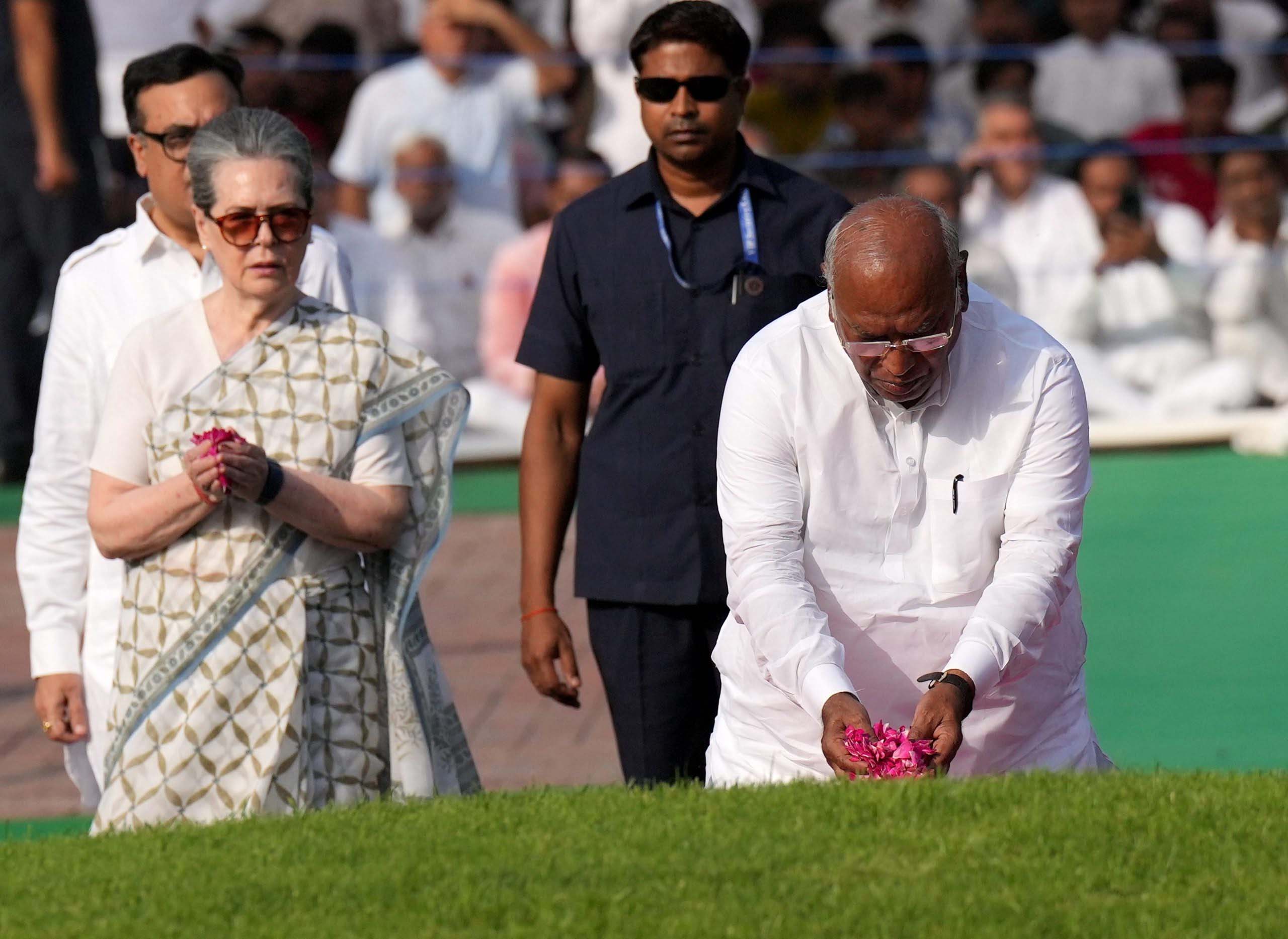Nehru’s Legacy: Congress Honors Modern India’s Architect
<p>On Monday, the Congress party reverently honored India’s inaugural Prime Minister, Jawaharlal Nehru, commemorating his death anniversary. Party chief Mallikarjun Kharge emphasized that the nation’s history is intrinsically woven with the unparalleled contributions of Nehru, often hailed as “the architect of modern India.” Both Kharge and former Congress president Sonia Gandhi paid their floral respects […]</p>

Nehru’s Legacy: Congress Honors Modern India’s Architect
On Monday, the Congress party reverently honored India’s inaugural Prime Minister, Jawaharlal Nehru, commemorating his death anniversary. Party chief Mallikarjun Kharge emphasized that the nation’s history is intrinsically woven with the unparalleled contributions of Nehru, often hailed as “the architect of modern India.”
Both Kharge and former Congress president Sonia Gandhi paid their floral respects at Nehru’s memorial, ‘Shantivan’.
In a Hindi post on X, Kharge articulated that India’s historical narrative remains incomplete without acknowledging Nehru’s invaluable contributions, which propelled the nation forward across scientific, economic, and industrial arenas.
Nehru, he asserted, was a staunch advocate of democracy and a perennial source of inspiration. “Our humble homage to ‘Hind ke Jawahar’ on his death anniversary,” Kharge expressed. He quoted Nehru’s profound belief that the protection, progress, and unity of the country constitute a national ethos for all citizens.
“We may adhere to diverse religions, reside in different states, and speak varied languages, yet these differences should not erect barriers among us. Equal opportunity for progress should be accessible to everyone. We reject a society where a minority is affluent while the majority languishes in poverty,” Nehru was quoted as saying.
Kharge emphasized that the Congress party remains steadfast on the path of “justice” espoused by Nehru. Former Congress president Rahul Gandhi also paid homage to his great-grandfather.
“Respectful tributes to the architect of modern India and the nation’s first Prime Minister, Pandit Jawaharlal Nehru, on his death anniversary. As a visionary, he devoted his entire life to India’s development through the freedom movement, establishing democracy, secularism, and laying the constitutional foundation. His values will eternally guide us,” Gandhi stated in a Hindi post on X.
Congress General Secretary Jairam Ramesh offered poignant tributes on Nehru’s 60th death anniversary. “On May 22, 1964, Nehru conducted his usual almost-monthly candid press interaction. Near the conclusion, when queried about succession, he humorously remarked, ‘my life is not ending very soon,'” Ramesh reminisced.
“Nehru then spent several days in Dehradun, where his last photograph alive was taken. He returned to New Delhi on May 26th. Perhaps his final act that night was penning a letter to Seiiche Hirose in Japan. Hours later, at 6:25 am on May 27th, Nehru lost consciousness and was declared dead at 2 pm,” Ramesh recounted.
Ramesh noted that throughout his extraordinary life, Nehru was deeply influenced by the teachings and life of the Buddha. “His study and bedroom bore testimony to this long-standing fascination. Remarkably, his last day on earth coincided with Buddha Purnima, and his final letter was addressed to a devout Buddhist,” he said.
Nehru’s deep engagement with history and his aspiration to bridge ancient traditions with the newly formed Republic of India led him to advocate for incorporating elements from Buddha’s greatest proponent, Emperor Ashoka—specifically the Ashoka Chakra in the national flag and the Sarnath Lion Capital as the national emblem, Ramesh highlighted. Nehru, India’s first and longest-serving Prime Minister, passed away in office in 1964.








